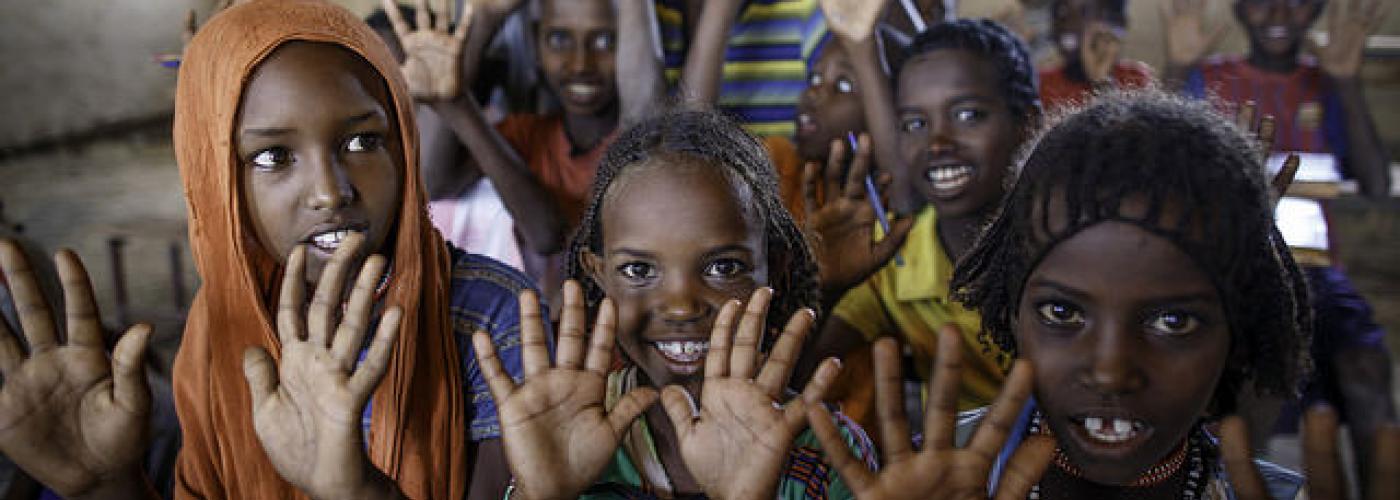Four Ways to Promote Girls’ Access to New Economic Opportunities
Image

“The most important factor is simply a recognition that gender barriers do exist and they are important.” - Karen Moore, Mastercard Foundation, Youth Livelihoods
The Making Cents International 2018 Global Youth Economic Opportunities Summit (GYEO) galvanized important conversations about how to foster and promote entrepreneurship, skills, resiliency, solutions, and excitement to create employment opportunities. Many of the Summit breakout sessions concentrated specifically on girls’ economic empowerment and how changemakers, foundations, implementing partners, and communities can mobilize around youth through a gendered lens. With each of these gender-focused sessions, one unifying goal is clear: to ensure that girls have access to the same opportunities as boys and that they are equally encouraged to pursue them. This year’s GYEO theme was "Learning & Earning in a Changing World of Work" and focused on the future of work and how to prepare youth for emerging industries and self-employment.
The summit surfaced many important best practices to promote girls access to economic opportunities, including the following:
Recognize and accommodate for gender barriers
Having equal opportunities does not always or necessarily mean that there is equity in the ability to access those opportunities. Often, structural and gender-based impediments exist that prevent or discourage girls from seeking education programs, trainings, or jobs that would otherwise help them reach their full economic potential. For example, facing safety concerns like street harassment or other forms of gender-based violence while commuting may be a deterrent. For girls with childcare or other domestic responsibilities, inadequate child care resources or rigid schedules may keep girls at home.
As one of its gender-responsive program designs, the Mastercard Foundation Gender and Youth Livelihoods Programming in Africa report recommends that training programs provide childcare accommodations, allow children to attend trainings, and offer flexible work schedules to increase participation. The report also suggests that schools provide sanitary supplies and reproductive health education so that girls are not missing school. The Independent reported that 137,700 girls in the United Kingdom were absent from school because they did not have feminine hygiene products. It’s important to account for the gender barriers that may prevent girls from participating in economic employment opportunities and to think critically about making program adaptations.
Cultivate different skills
Many GYEO panelists highlighted soft skill development as a necessary tool to help girls increase their market potential. Girls may not be socialized in ways that some boys are to develop skills such as goal-setting, self-esteem, problem-solving, self-efficacy, and so forth. Instead, many communities encourage girls to learn domestic skills or prepare them for informal or low-earning jobs. However, the jobs women have in domestic or informal labor markets equip them with entrepreneurial skill-sets such as multitasking, collaboration, resourcefulness, and self-reliance that can translate well to more formal jobs. GYEO speaker Gemma Bulos (Global Women’s Water Initiative) shared that these entrepreneurial mindsets should be harnessed.
Additionally, in developing soft skills and fostering transferable skills, another action step is to teach girls technical skills — like numeracy, financial literacy, negotiation, and many others — that will empower them to manage their personal resources.
Mentor and train
Along with building skills, another way to promote new economic opportunities for girls is to encourage exploration of careers that are not traditionally available to girls, such as those in the science, technology, engineering, and math (STEM) fields. According to a recent USAID report by Lis Meyers of Nathan Associates, many countries have regulations that restrict women from jobs in energy, construction, mining, and agriculture. Meyers writes that these restrictions are in place due to concerns about safe workplace conditions and how these conditions (such as noise and vibrations from working on subway cars) may adversely affect reproductive health. Many of these restrictions may also be based on cultural norms and communities that do not fully accept women working in these markets.
Community backing and mentorship is a great way to bolster support for girls entering non-traditional career paths. Mambepa Nakazwe, founder of the Seeds of Change Foundation in Zambia, is raising awareness to break down cultural barriers and champion girls to pursue careers in STEM. Seeds of Change engages community leaders to serve as influencers that can challenge mindsets about girls’ education and enforce positive messages. In a video highlighting Nakazwe's work in STEM, she shared that as an intern she was assigned a supervisor but male interns were not, because the institution had more confidence in their work. Reflecting on this experience, Nakazwe wants educators to think more creatively about how to encourage girls’ participation in STEM subjects and create internships where they gain practical experience.

Photo by Bobby Neptune for USAID
Engage the private sector
Laboratoria, a tech bootcamp program in Latin America, trains women in tech and places them in jobs around the world. The website reports that Laboratoria has graduated 800+ students in three years and has a job placement rate of 80 percent with over 200 companies. The Laboratoria model emerged from a recognition that 40 percent of women in Latin America do not have access to formal education or jobs. This training program taps low-income and untapped youth to prepare them for careers as junior software developers, writes co-founder Mariana Costa Checa. Through connections with the private sector, Laboratoria has managed to triple the income of its graduates. One of the program’s alumna shared on a panel that Laboratoria was empowering and led her to jobs with Microsoft and Code for Development.
The Private Education Development Network (PEDN) in Uganda is making improvements to its girls’ education model and engaging the private sector by cultivating a consortium-led partnership. This global collaboration strategizes ways to help economically empower girls by training teachers that can then train girls. Private sector partnerships — such as with Aflatoun International, an organization that teaches youth social and financial education — make this project possible.
Moving forward
These strategies can be replicated in gender-focused programs, youth policy initiatives, and organizational recruitment approaches. By recognizing gender barriers and creating opportunities for equal access to education and training programs, girls can utilize skills they have already developed in conjunction with new skills. This prepares girls for new occupations, which unlocks their economic potential and participation in formal markets.


